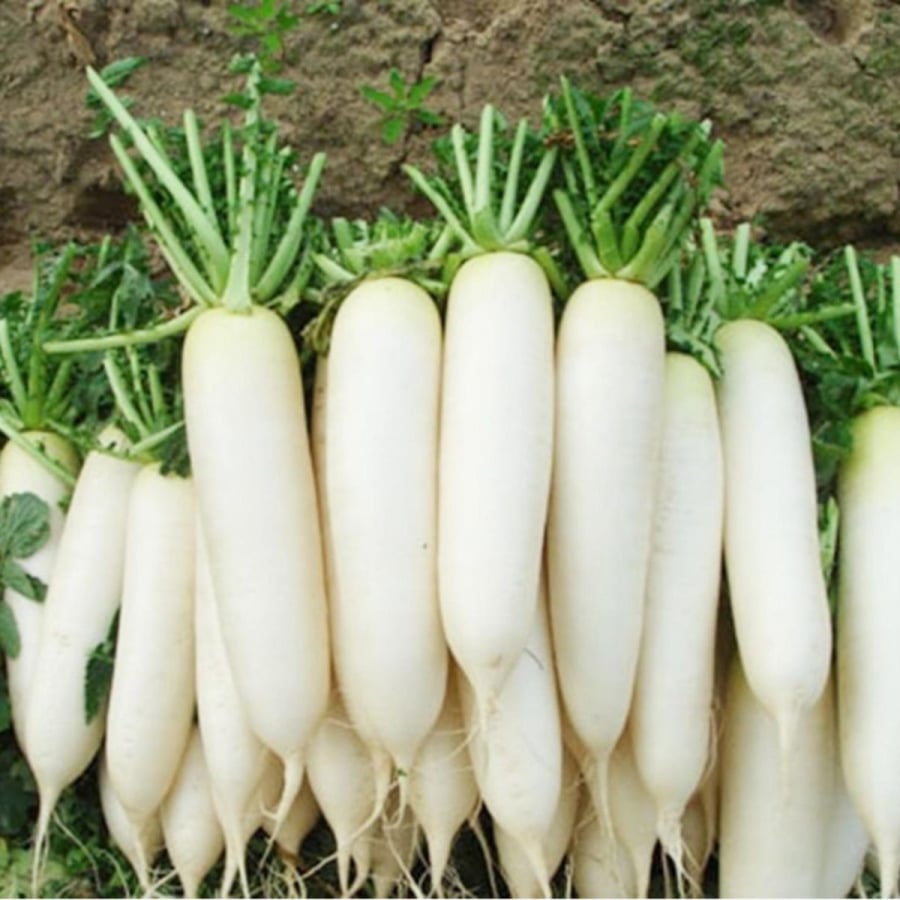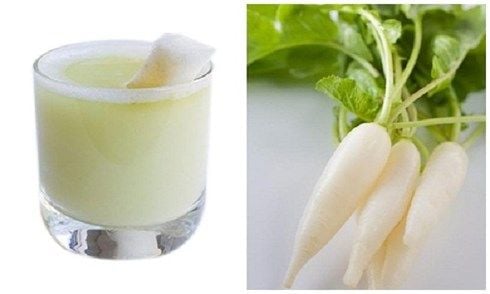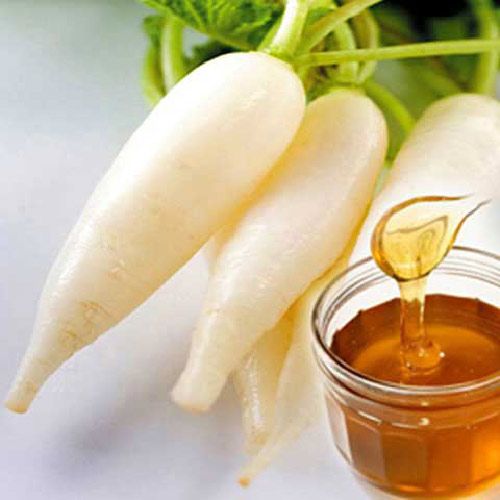Sore throats, hoarseness, or throat irritation are common symptoms when the weather changes or when the body is fatigued, with a weakened immune system, especially during the transitional seasons of autumn to winter and winter to spring. Beyond prescribed medications, many seek natural remedies to alleviate symptoms in cases where the condition is not severe or has been recurrently treated with difficulty. Among these, white radish is an affordable and widely available autumn-winter staple, highly regarded in both folk wisdom and traditional medicine for its ability to soothe the throat, dissolve phlegm, and reduce hoarseness.
Nutritional Value and Precious Active Compounds in Radish
According to some sources, 100 grams of white radish contains only about 20–25 kcal but is rich in vitamin C, fiber, calcium, iron, and antioxidants like flavonoids and anthocyanins. Vitamin C and these compounds strengthen the immune system, reduce inflammation, and aid in healing irritated throat membranes.
In traditional Eastern medicine, radish has a slightly sweet and mildly spicy flavor with a cooling nature, offering effects such as heat clearance, phlegm elimination, and lung nourishment. This is why radish is commonly featured in remedies for coughs and hoarseness, particularly during dry weather.

6 Effective Ways to Use Radish for Coughs and Hoarseness
Fresh Radish Juice
Preparation: 1–2 fresh white radishes, washed and peeled.
Method: Extract the juice and optionally mix with a bit of pure honey.
Benefits: Fresh radish juice soothes throat membranes, reduces inflammation, and aids in phlegm elimination. Honey enhances antibacterial properties, making the throat smoother.
Note: Sip in small amounts, 1–2 times daily, and avoid drinking on an empty stomach.

Steamed Radish with Honey
Ingredients: 200 g thinly sliced radish, 2–3 tablespoons of honey.
Method: Place radish in a bowl, mix with honey, and steam for 15 minutes.
Benefits: The warmth from steaming blends the essence, effectively soothing the throat, reducing dry coughs, and alleviating soreness.

Radish, Ginger, and Rock Sugar Syrup
Preparation: 300 g radish, 1 ginger root, 100 g rock sugar.
Method: Slice radish and ginger, layer alternately with rock sugar in a glass jar, and let sit for 6–8 hours to extract the syrup.
Benefits: Ginger’s warming nature and antibacterial properties, combined with radish, help clear airways, warm the throat, and reduce cold-induced coughs.
Cooling Radish Soup
Ingredients: Radish, carrot, and a small amount of chicken or pork bones.
Cooking Method: Simmer bones for broth, add radish and carrot, and cook until tender. Season to taste.
Benefits: This cooling soup replenishes vitamins, helps lower body heat, and is ideal for those with coughs accompanied by internal heat.

Moderately Fermented Radish
Fermentation increases beneficial probiotics for gut health, supporting immunity. Those with coughs or hoarseness can consume small amounts to improve digestion and reduce phlegm.
Alternatively, simply boil radish until tender, then eat the radish and drink the broth for a soothing effect and clearer voice.
Important Precautions When Using Radish
Avoid Overconsumption: Excessive radish intake can cause abdominal coldness and bloating. Due to its nitrite content, consume in moderation.
Individuals with stomach issues or low blood pressure should use sparingly, as radish’s cooling nature may lower blood pressure.
Choose clean, chemical-free radishes, preferably organic. Pay extra attention to hygiene when consuming fresh radish juice.
Consult a doctor if taking cough medications or managing chronic conditions to avoid unwanted interactions.
Seek medical attention if coughs persist beyond 1–2 weeks, especially with high fever or breathing difficulties.
Long-Term Benefits of Incorporating Radish into Meals
Beyond alleviating coughs and hoarseness, radish supports cardiovascular health, helps manage cholesterol, and aids in weight loss. Its fiber content promotes digestive health, reducing constipation and indirectly enhancing overall immunity.

































